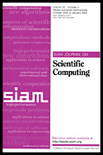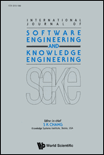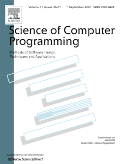
Innovations in Systems and Software Engineering
metrics 2024
Driving Collaboration in Systems and Software Innovations
Introduction
Innovations in Systems and Software Engineering, published by Springer London Ltd, is a highly relevant journal dedicated to advancing the field of software engineering and systems innovation. With an ISSN of 1614-5046 and E-ISSN 1614-5054, this journal serves as a key platform for researchers and practitioners to share their insights, cutting-edge research, and developments from 2005 to 2024. Positioned in the Q3 category for software within the 2023 metrics and ranked #219 out of 407 in Scopus, the journal highlights its commitment to addressing the evolving challenges and opportunities in software systems. Although not open access, it maintains a rigorous peer-review process to ensure the dissemination of quality research. As the field continues to grow in complexity, Innovations in Systems and Software Engineering is vital for fostering collaboration and innovation among professionals, students, and researchers aiming to shape the future of software engineering.
Metrics 2024
 0.36
0.36 1.10
1.10 1.00
1.00 31
31Metrics History
Rank 2024
Scopus
IF (Web Of Science)
JCI (Web Of Science)
Quartile History
Similar Journals

SIAM JOURNAL ON SCIENTIFIC COMPUTING
Transforming Scientific Challenges into Computational SolutionsSIAM Journal on Scientific Computing is a premier journal published by SIAM Publications, focusing on the interdisciplinary domain of scientific computing. With a significant standing in the academic community, this journal boasts a 2023 Q1 ranking in both Applied Mathematics and Computational Mathematics, positioning it among the top-tier publications in these fields. The journal aims to disseminate high-quality research that applies computational methods to solve scientific and engineering problems, fostering advancements in numerical analysis, algorithms, and software development. Researchers and professionals can greatly benefit from the journal's rigorous peer-review process and its reputation for publishing cutting-edge studies. Though it is not an open-access journal, subscribing institutions and individual subscribers gain access to a wealth of knowledge tailored for those seeking to enhance their expertise in scientific computation. With its established history since 1996 and continuing to publish until 2024, the SIAM Journal on Scientific Computing remains an essential resource for students, researchers, and professionals dedicated to pushing the boundaries of this dynamic field.

INTERNATIONAL JOURNAL OF SOFTWARE ENGINEERING AND KNOWLEDGE ENGINEERING
Pioneering Research in Software and Knowledge SystemsThe INTERNATIONAL JOURNAL OF SOFTWARE ENGINEERING AND KNOWLEDGE ENGINEERING, published by WORLD SCIENTIFIC PUBL CO PTE LTD in Singapore, is a pivotal platform for disseminating cutting-edge research in the fields of software engineering and knowledge systems. With an ISSN of 0218-1940 and an E-ISSN of 1793-6403, this journal has been a reliable resource for scholars and practitioners since its inception in 1996. The journal is indexed across multiple prestigious databases, reflecting its relevance with a Category Quartile ranking of Q3 in both Computer Graphics and Computer Networks for 2023, and it maintains a steady trajectory of growth and scholarly contribution. Although not an Open Access journal, it is accessible through various academic institutions and libraries, ensuring researchers can engage with high-quality, peer-reviewed articles that explore advancements, theoretical developments, and practical applications in software and knowledge engineering. As it converges towards its end year of 2024, this journal continues to foster innovation and knowledge exchange, making it an essential resource for anyone invested in these dynamic fields.

Journal of Object Technology
Connecting Scholars to the World of Object TechnologiesJournal of Object Technology is a premier publication housed under the esteemed JOURNAL OBJECT TECHNOLOGY in Switzerland, dedicated to advancing the field of software engineering and technology. With a history of continuous publication since 2002, this journal serves as a platform for innovative research, critical reviews, and case studies that explore the nuances of object-oriented technologies and their applications in software development. Although currently categorized in the lower quartile (Q4), this journal's focus on relevant and emerging topics remains vital for researchers, professionals, and students alike, seeking to enhance their understanding of contemporary software-related issues. Addressing significant milestones and offering insights into future directions, the Journal of Object Technology plays an essential role in the evolving landscape of computer science, providing open access opportunities that ensure wide dissemination of knowledge. Situated at ETH Zurich, the journal is committed to fostering collaboration and dialogue among researchers worldwide, underscoring its importance within the global scholarly community.

SCIENCE OF COMPUTER PROGRAMMING
Unveiling the Science Behind Software InnovationScience of Computer Programming, published by Elsevier, is a leading journal dedicated to advancing knowledge in the fields of computer programming, computational theory, and software development. With a focus on interdisciplinary research that spans computational methodologies, information systems, and simulation modeling, this journal plays a vital role in disseminating innovative findings and fostering collaboration among experts in these dynamic areas. With a respectable impact factor and ranked in various Scopus Categories such as computational theory (Q3) and information systems (Q2), it provides a platform for high-quality scholarly articles that push the boundaries of programming science. Although currently not open access, the journal offers invaluable insights for researchers, professionals, and students alike, ensuring they are equipped with the latest advancements and methodologies to thrive in an ever-evolving technological landscape. The journal covers research from its convergence starting in 1981 and continues to welcome groundbreaking contributions as it looks forward to an exciting future through 2025 and beyond.

EMITTER-International Journal of Engineering Technology
Advancing Engineering Innovation for a Technological TomorrowEMITTER-International Journal of Engineering Technology is a distinguished and innovative journal published by POLITEKNIK ELEKTRONIKA NEGERI SURABAYA, focusing on the dynamic field of engineering technology. Since its inception in 2013 as an Open Access journal, it has been dedicated to advancing the dissemination of high-quality research that bridges theoretical knowledge and practical applications. With an ISSN of 2355-391X and an E-ISSN of 2443-1168, EMITTER invites researchers and practitioners to engage with critical topics in electrical engineering, software development, and technology integration. The journal aims to foster a collaborative environment for the sharing of groundbreaking insights that enhance technological development and innovation in engineering practices, making it an essential resource for academics, industry professionals, and students alike in the ever-evolving landscape of technology.

PROGRAMMING AND COMPUTER SOFTWARE
Advancing Software Development Through Rigorous ResearchPROGRAMMING AND COMPUTER SOFTWARE is a distinguished journal committed to advancing the field of software development and programming methodologies. Published by PLEIADES PUBLISHING INC, this journal has been a valuable resource since its inception in 1978, reaching out to researchers, professionals, and students alike. With an emphasis on rigorous peer-reviewed articles, the journal holds a Q3 ranking in the realm of Software according to the latest 2023 Category Quartiles. Though it does not offer open access, the journal ensures that high-quality research is disseminated to its audience, providing insights into evolving programming techniques, software engineering challenges, and innovative solutions. With its convergence of years extending to 2024, PROGRAMMING AND COMPUTER SOFTWARE remains a pivotal publication, fostering a deeper understanding of the complexities in computer programming while supporting the broader software community.

SOFTWARE QUALITY JOURNAL
Elevating standards in software quality assurance.SOFTWARE QUALITY JOURNAL, published by Springer, is a preeminent platform dedicated to advancing the field of software engineering and quality assurance. With an ISSN of 0963-9314 and an E-ISSN of 1573-1367, this journal serves as a vital resource for academics and practitioners alike, bridging the gap between theoretical frameworks and practical applications. The journal is recognized for its impactful contributions, holding a remarkable Q1 ranking in Media Technology and demonstrating strong performance with Q2 placements in Safety, Risk, Reliability and Quality, as well as Software, solidifying its reputation in the academic community. As of 2023, the journal is ranked 64th in Safety, Risk, Reliability and Quality and 176th in Computer Science Software on Scopus, showcasing its relevance and influence. Covering a broad range of topics from software quality metrics to risk management strategies, SOFTWARE QUALITY JOURNAL aims to foster innovation and best practices in software development. Join a community of leading researchers and professionals committed to enhancing the quality and reliability of software systems.

Software Impacts
Advancing Software Science for a Brighter FutureSoftware Impacts is an esteemed academic journal published by ELSEVIER, dedicated to advancing the field of software science and informing best practices in development and application. With an ISSN of 2665-9638, this journal facilitates the dissemination of impactful research from 2019 to 2024, making it a valuable resource for both established researchers and promising students alike. Although it currently holds a Q3 ranking in the category of Software and ranks at #270/407 in Scopus, it continues to contribute significantly to the discourse surrounding software-related innovations and methodologies. The journal’s open access policy enhances accessibility and encourages a broader readership, fostering an environment where critical discussions flourish. By addressing the ongoing challenges and advancements in software technology, Software Impacts plays a crucial role in shaping the future of software development and its applications globally.

Applied Computer Systems
Unlocking Potential Through Rigorous ResearchApplied Computer Systems is a distinguished journal published by SCIENDO, specializing in the dynamic field of computer science and technology. With the ISSN 2255-8683 and E-ISSN 2255-8691, this Open Access journal has been committed to disseminating high-quality research since 2008, ensuring global accessibility for researchers and practitioners alike. Hailing from Warsaw, Poland, the journal serves as a crucial platform for innovative studies that delve into applied computing methodologies and their diverse applications across industries. By maintaining rigorous peer-review standards, Applied Computer Systems supports the advancement of knowledge in computing, making it an essential resource for students, professionals, and academics seeking to stay at the forefront of technological progress. Engage with a community dedicated to exploring the integration of computer systems in a rapidly evolving digital landscape.

INTERNATIONAL JOURNAL OF UNCERTAINTY FUZZINESS AND KNOWLEDGE-BASED SYSTEMS
Exploring the intersection of fuzziness and artificial intelligence.Welcome to the INTERNATIONAL JOURNAL OF UNCERTAINTY FUZZINESS AND KNOWLEDGE-BASED SYSTEMS, a prestigious publication dedicated to advancing the fields of artificial intelligence, control systems engineering, information systems, and software research. Published by WORLD SCIENTIFIC PUBL CO PTE LTD in Singapore, this journal serves as a vital forum for the dissemination of innovative theories, methodologies, and applications rooted in the coexistence of uncertainty and fuzziness within knowledge-based systems. With its ISSN 0218-4885 and E-ISSN 1793-6411, the journal consistently ranks in the Q3 category across various Scopus categories, including Control and Systems Engineering and Information Systems, reflecting its influential position in the academic community. Researchers and practitioners alike will find valuable insights and the latest trends through its comprehensive articles, making this journal an essential resource for those seeking to navigate the complexities of this evolving field.